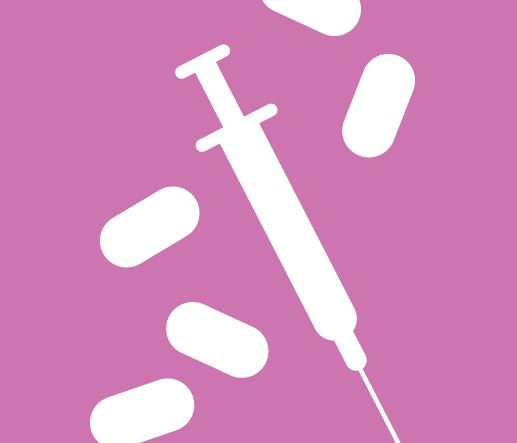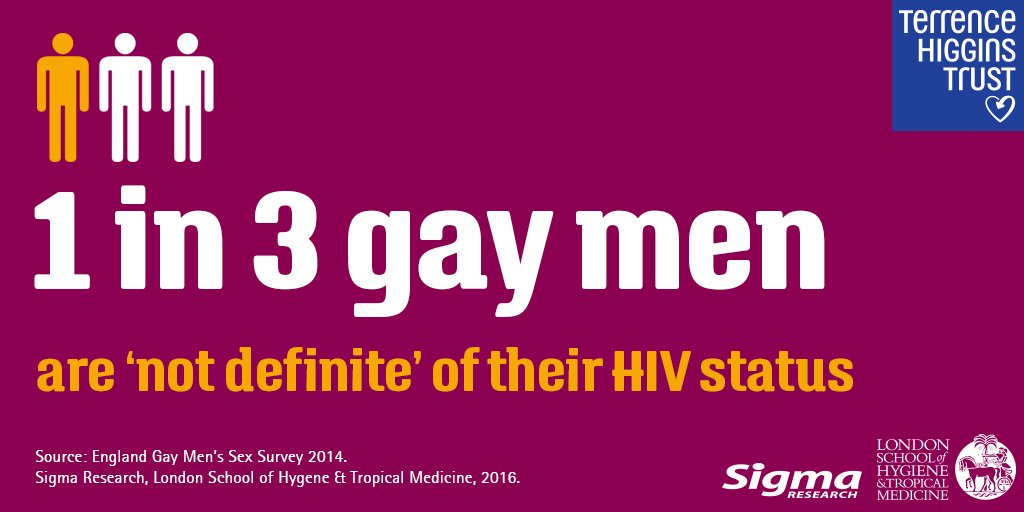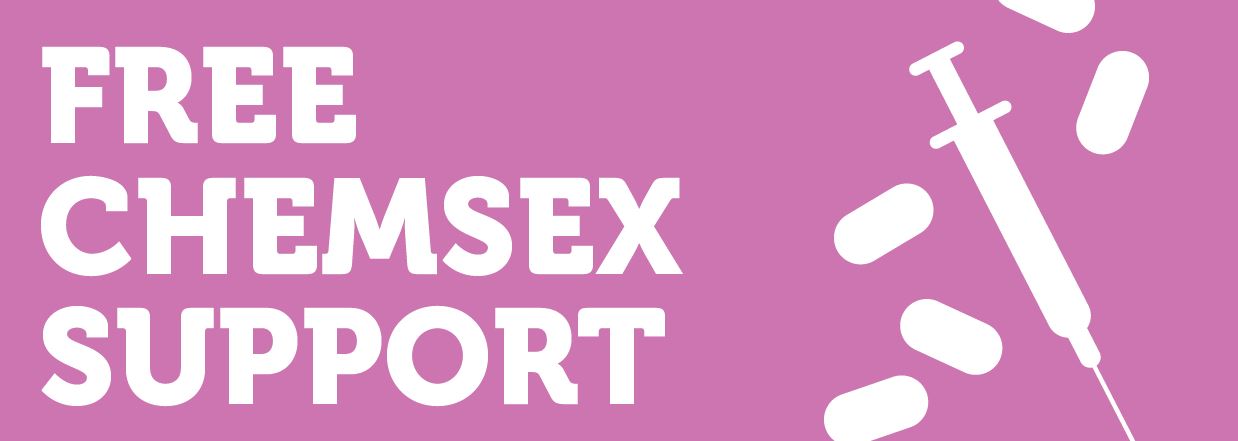
It’s felt a long time coming but this week the latest survey findings from the Gay Men’s Sex Survey have finally been released. The data was gathered in 2014 and present the most up to date extensive survey of gay and bisexual men living in England about their sexual behaviour and knowledge of sexual health.
The lead headlines show that more men than ever are testing for HIV. 77% of men have tested (up from 72% in the previous survey from 2010) with 55% having tested in the past 12 months, this figure up significantly from the 36% reported in 2010. That’s great news that interventions to promote testing and make it more accessible than ever before are making progress.
Testing regularly for HIV is a key part of HIV prevention strategies. Knowing whether you have the virus gives you the ability to take control of your health and reduce the risk of passing it on to other people. Advances in treatment mean that taking it promptly can reduce the level of the virus in your body, making it undetectable and extremely unlikely to be transmitted to other sexual partners. Starting treatment early means it’s more likely to be effective, and those on it now have pretty much the same life expectancy as people who are HIV negative.
At London Friend we especially welcome the survey findings as they include all-too rare data about the role of alcohol and drugs. Our work in our Antidote LGBT drug and alcohol service has been dominated by responding to chemsex needs in the past few years, but it’s been difficult to get a perspective on how widespread a problem it actually is. The Gay Men’s Sex Survey gives us some answers.

Overall just over half (52.6%) or respondents had previously taken an illicit drug at some point in their lives. Looking at more recent use the most prevalent drug was cannabis, used by a quarter (25.9%) in the last year, followed by cocaine used by fewer than 1 in 5 (17.7%) over the same period. Ecstasy was the next highest, used by about 1 in 3 (32.6%) of gay or bisexual men ever in their lives, and about 1 in every 6.5 (15.3%) men in the past 12 months.
These figures may be surprisingly low to those who claim that ‘every gay man is at it’ and may help to challenge the belief that gay culture is all about hedonism. It’s a confidence boost to those who choose not to use drugs, knowing that contrary to popular perception they’re actually among the majority. They’re still higher than for society as whole though: the latest official UK data showed gay and bisexual men were three times more likely to have used an illicit drug in the past year than heterosexual men.
As we’ve previously reported the use of the three main chemsex drugs (mephedrone, GHB/GBL and crystal methamphetamine) is much more limited, and the data here further confirms this. The Survey indicates that chemsex drugs were used by 7% of respondents during the last 4 weeks. The survey concludes that whilst use of these three drugs is relatively small on a national scale, their use is highly concentrated, making it very common amongst some groups. Use is higher amongst men living in London (14.3%), and amongst those who are HIV positive (22% nationally, and 33% in London).
Use of these drugs may still be less widespread, but they continue to be responsible for most of the substance related problems in our community that lead men to seek help.
This disproportionality is key, and is also reflected in the increased harms associated with these three drugs. The Survey comes as we are analysing our own data from the past year. This shows that most of our requests for help remain for one or more of these three drugs and related to chemsex. Half (49%) of our clients sought help for crystal meth; two thirds (66%) for GHB/GBL; and 70% for mephedrone. Use of these drugs may still be less widespread, but they continue to be responsible for most of the substance related problems in our community that lead men to seek help.
The Survey shows something of the relationship between alcohol, drugs and HIV. Although more than half did not see a connection with substance use and their acquisition of HIV, 42% indicated some link. This is similar to the 46% of our HIV+ service users who thought their acquisition was linked to their sexual behaviour whilst using drugs. Additionally 90% of our service users who had accessed PEP, the emergency treatment following an HIV exposure risk, told us this was related to chemsex.
All of this is a strong indication that HIV prevention work needs to work not in isolation, but in the context of other health factors in gay and bisexual men’s lives. In a press release Dr Ford Hickson, lead researcher for the Survey said: “Although chemsex remains a reality for a relatively small proportion of gay and bisexual men, the potential for harm from it is very high. It is important to provide specialist support for men on the chemsex scene. Combining sex and drugs can easily become compulsive and can increase sexual risk taking. That a large proportion of men say alcohol or drugs played a part in their becoming infected with HIV means everyone on the scene and in services needs to think about how we can help men get better sex with less harm.”
Today also sees the launch of Do It London’s summer HIV testing campaign. The pan-London programme is backed by all of London’s local authorities, and encourages men who have sex with men to test regularly. Current guidance from Public Health England is for sexually active MSM to test at least once a year, and for those who have condomless sex with multiple partners to test more regularly, about every three months. Testing for HIV has never been easier with free testing available at local GUM clinics, and home sampling kits available by post.
At London Friend we support initiatives that encourage men to test regularly, but we also know that post-test support is vital for men who receive a positive diagnosis. Last year 30% of our Antidote clients told us their drug use had only started following a positive test result, and 47% said their use had gone up after learning about their status. This support need is worrying, against a backdrop of cuts to HIV services linked to pressures on public health budgets. Local authorities must not lose sight of the longer-term view, something I warned the Mayor of London’s Health Committee about when I gave evidence to them last week. You can add your support to the community’s call to end cuts to HIV services by signing up here. The public consultation on plans to integrate HIV support into generic services in Lambeth Southwark and Lewisham is open until 29th June here.
The Survey is a timely snapshot, and gives those commissioning and providing HIV prevention and support services more insight into the current landscape, with opportunities for us to reflect and use the data to improve. Whenever the next Survey is carried out it will likely also include data and information on PrEP, which remains a priority for HIV organisations and activists as NHS England continue to claim they are not responsible to provide it. We’re supportive of the current legal challenge being brought by our friends at the National AIDS Trust, which you can lend financial support to here. We’ll also be proudly joining fellow organisations to march together at this year’s Pride In London under the banner #United4PrEP, determined to make this new HIV prevention technology available to all who need it.

Antidote offers free alcohol and drug support for LGBT people in London. More information about our services is available here.
You can support London Friend’s work with a one-off or regulation donation here.
Monty
Monty Moncrieff is the Chief Executive of London Friend. Twitter @montymoncrieff
